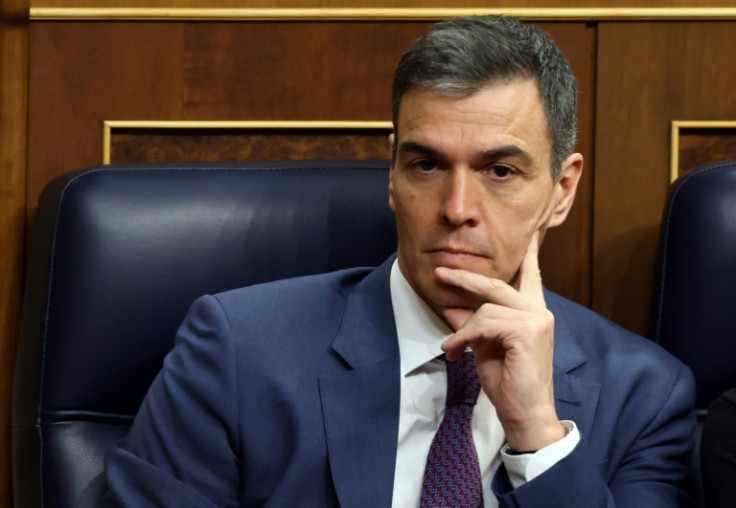
Spanish Prime Minister Pedro Sanchez will break his silence on Monday and announce whether or not he will step down following the opening of a corruption probe into his wife's business dealings.
The 52-year-old, in office since 2018 and only reappointed to another term in November, is expected to address the media from the Moncloa palace in Madrid, his official residence.
Sanchez announced last Wednesday that he was mulling resignation after a Madrid court opened a preliminary probe into suspected influence peddling and corruption targeting his wife Begona Gomez.
"I need to stop and think whether I should continue to head the government or whether I should give up this honour," he wrote in a four-page letter posted on X, formerly Twitter.
Thousands of supporters massed outside the headquarters of Sanchez's Socialist party in Madrid on Saturday chanting "Pedro, stay!"
Spain's public prosecutor's office on Thursday requested the dismissal of the investigation.
But Sanchez, an expert in political survival who has made a career out of taking political gambles, has suspended all his public duties and retreated into silence.
Last Thursday, he had been due to launch his party's campaign for the May 12 regional elections in Catalonia in which his Socialists hope to oust the pro-independence forces from power.
If he does resign, analysts said early elections could be called in July -- a year after the last ones -- with or without Sanchez at the helm of the Socialist party.
The Socialists could also propose that parliament appoint his replacement. Budget Minister Maria Jesus Montero, who is also deputy prime minister, has been touted as a likely contender.
If Sanchez decides to stay on, he could file a confidence motion in parliament to show that he and his minority government are still supported by most lawmakers.
The court opened its investigation into Sanchez's wife in response to a complaint by anti-corruption pressure group Manos Limpias (Clean Hands), whose leader is linked to the far right.
The group, which has presented a litany of unsuccessful lawsuits against politicians in the past, said in a statement on Wednesday that it had based its complaint on media reports and could not vouch for their veracity.
While the court did not give details of the case, online news site El Confidencial said it was related to her ties to several private companies that received government funding or won public contracts.
Sanchez has said the move against his wife is part of a campaign of "harassment" against them both waged by "media heavily influenced by the right and far right" and supported by the conservative opposition.
Sanchez has been vilified by right-wing opponents and media because his minority government relies on the support of the hard-left and Catalan and Basque separatist parties to pass laws.
They have been especially angered by his decision to grant an amnesty to hundreds of Catalan separatists facing legal action over their roles in the northeastern region's failed push for independence in 2017.
That amnesty, in exchange for the support of Catalan separatist parties, still needs final approval in parliament.
The opposition has since Wednesday mocked Sanchez's decision to withdraw from his public duties for a few days, dismissing it as an attempt to rally his supporters.
"A head of government can't make a show of himself like a teenager and have everyone running after him, begging him not to leave and not to get angry," the head of the main opposition Popular Party, Alberto Nunez Feijoo, said on Thursday.
Sanchez, he said, had subjected Spain to "international shame".








